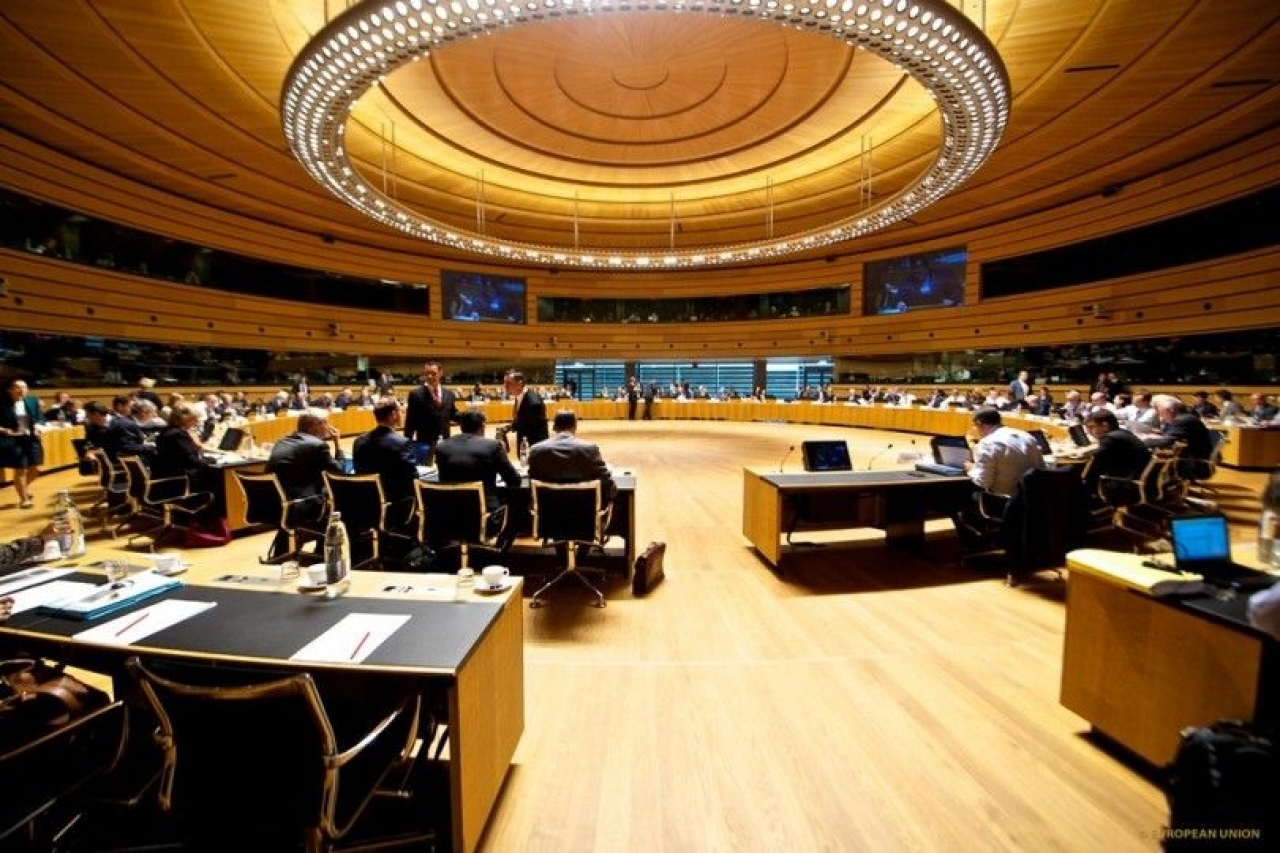EU Foreign Ministers expressed support for the efforts of the Ukrainian president to find a lasting solution to the crisis in the country
23 June 2014 News
EU Foreign Ministers reaffirmed their support for the efforts of the newly elected Ukrainian president Petro Poroshenko to find a lasting solution to the crisis in Ukraine. At the Foreign Affairs Council, held today in Luxembourg, Ukrainian Foreign Minister Pavlo Klimkin presented President’s peace plan to ceasefire and take concrete steps to reduce tensions and restore peace and security in East Ukraine.
Foreign Ministers expressed confidence that the forthcoming signing of the EU-Ukraine Association Agreement, including the Deep and Comprehensive Free Trade Area, will give a strong impetus to the reforms in the country, which will lead to a comprehensive modernization, strengthening the rule of law and achieving economic growth. The EU encourages the Ukrainian authorities to continue their work on conducting constitutional reforms through inclusive dialogue, including decentralization measures, ensuring the rights of national minorities, judicial reform and fighting corruption.
The Council decided to establish a Common Security and Defence Policy mission to assist Ukraine in the field of civilian security sector reform, including police and rule of law. The expected deployment date of the mission is in July 2014.
The EU will continue to support the economic stabilization of Ukraine, reaffirming its readiness to assist in reaching a compromise between Russia and Ukraine on the issue of gas supply. The question is of crucial importance both for the Ukrainian economy and the energy security of the EU.
Minister Vigenin emphasized that for Bulgaria it is key to reach an agreement on the gas dispute between Ukraine and Russia, as far as our country is fully dependent on transit through Ukraine and any disruption is a threat to national security.
The Bulgarian Minister expressed the opinion that there are no grounds for moving to the next level of sanctions against the Russian Federation and noted that the Russian President Vladimir Putin has supported the peace plan of the Ukrainian head of state Poroshenko.
Foreign Ministers took the decision to move to the second phase of the visa liberalization plan and underlined the need for Ukraine to meet all standards and criteria.
Ministers also discussed the situation in Libya, expressing deep concern over the deteriorating political and security situation in the country. The instability in Libya poses serious risk to the security of the neighboring countries and the region as a whole. The EU stands ready to continue supporting Libya on its path todemocracy and welcomes the holding of parliamentary elections on 25 June 2014, leading to the creation of a strong and legitimate institutions to ensure the security and implement the necessary reforms. The EU will continue to support the Libyan authorities in their efforts to improve border management and the fight against human trafficking and illegal migration.
Ministers also discussed the situation in Syria and how to continue the political process in order to resolve the crisis in the country. The participants shared the view that finding a political solution to the conflict in Syria is a prerequisite for the establishment of stability in the region. They expressed deep concern over the strong refugee pressure on the neighboring countries Lebanon, Jordan and Iraq, as well as the activities of the Islamic State of Iraq and the Levant.
Ministers of Foreign Affairs discussed the deteriorating security situation in Iraq as a result of the offensive and the vast Iraqi territories conquered by the Islamic State of Iraq and the Levant and listened to the Special Representative of the UN Secretary General for Iraq, Nikolay Mladenov. The participants expressed EU’s strong support for the unity, sovereignty and territorial integrity of Iraq, and called on Iraqi leaders to hold dialogue and create a government of national consensus involving all ethnic and religious communities. EU expressed serious concern over the deteriorating humanitarian crisis and readiness to provide humanitarian assistance to people internally displaced by the conflict.
